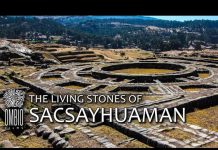The question of whether or not we are alone in the universe has been a source of fascination for centuries. While some may dismiss stories of extraterrestrial life as nothing more than science fiction, the release of previously classified “UFO files” by the UK Ministry of Defence in 2010 has revealed that the government takes the possibility of close encounters very seriously.
The documentary “UFO: New Evidence” explores the contents of these files, which contain reports of sightings and encounters with unidentified flying objects across Britain. From the wartime cover-up orchestrated by Winston Churchill to the alleged UFO crash in Wales and the bizarre experience of a Boeing 737 jet pilot flying over Manchester, these files provide a fascinating glimpse into the government’s interest in and investigation of the unknown.
But “UFO: New Evidence” is more than just a collection of government documents. It also examines the cultural and societal factors that have influenced our perceptions of extraterrestrial life over time. From the fears of invasion during wartime to the influence of science fiction in popular culture, the documentary explores the many factors that have shaped our understanding of the unknown.
Despite its title, “UFO: New Evidence” is not a sensationalist exploration of conspiracy theories and little green men. Instead, it presents a sober and informative look at the government’s approach to investigating UFO sightings, as well as the social and cultural forces that have driven our fascination with the unknown.
While the documentary may not provide definitive proof of extraterrestrial life, it raises thought-provoking questions about our place in the universe and our relationship to the unknown. Whether you’re a die-hard believer or a skeptical observer, “UFO: New Evidence” is an engaging and informative exploration of a subject that continues to captivate and intrigue us all.

































